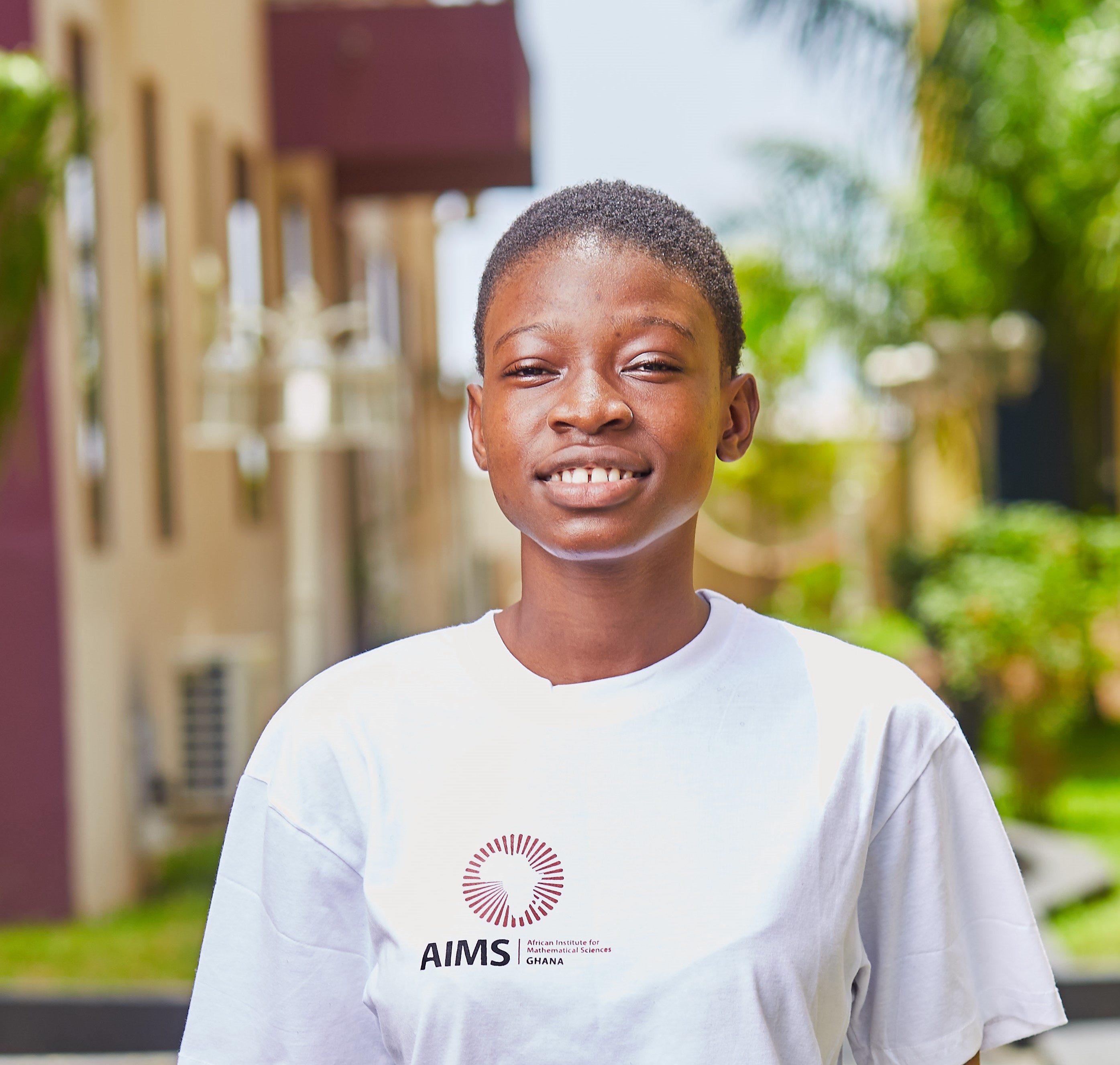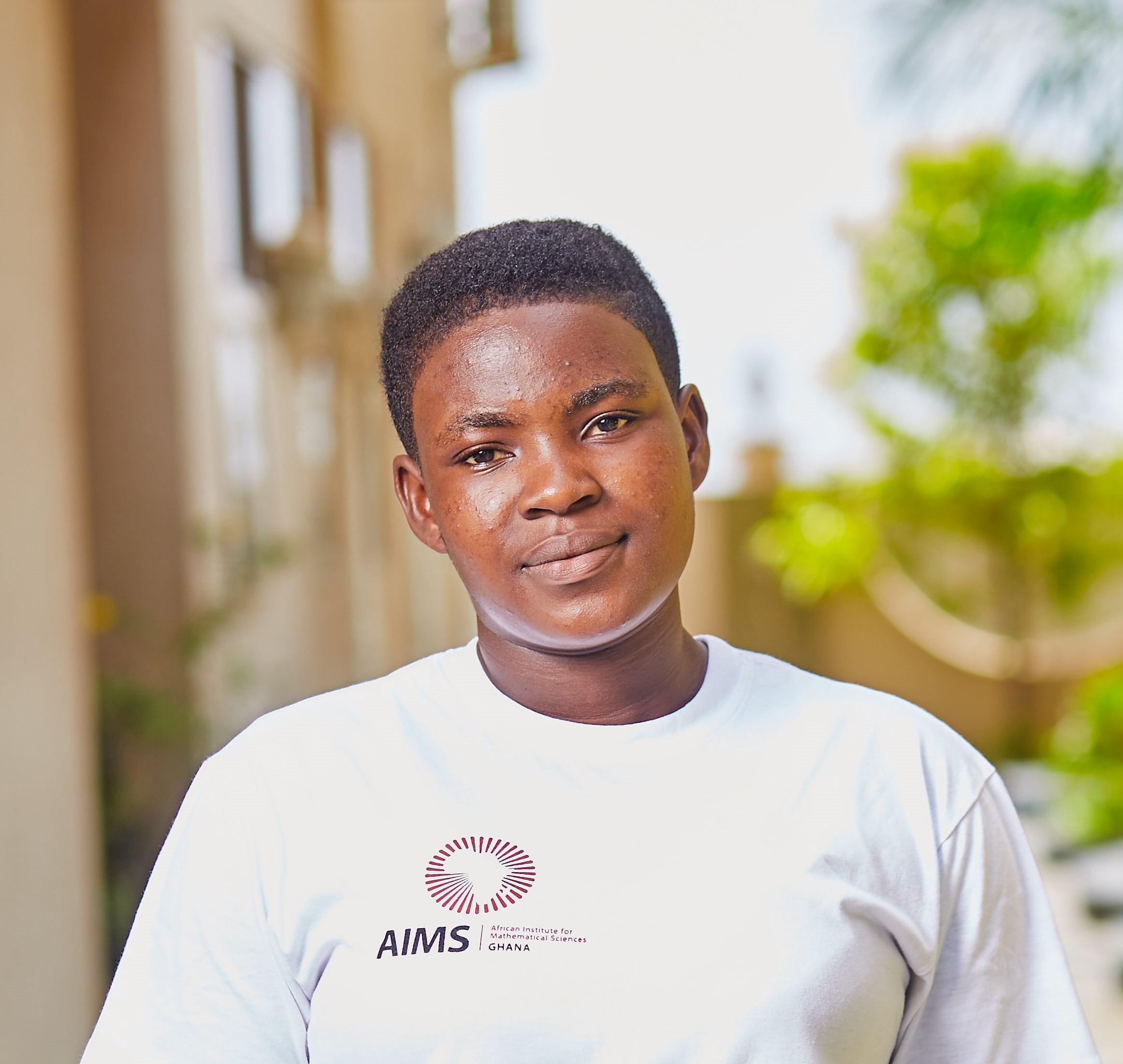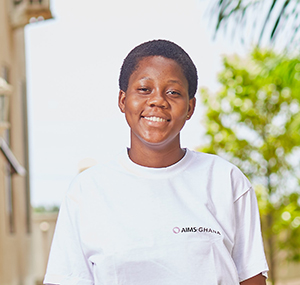Helping girls in Ghana lead the charge in mathematics and technology
An international collaboration in Ghana is sparking excitement among students and educators about the future of STEM.
By Lisa Kabesh

GMSP participant
The Centre for Education in Mathematics and Computing (CEMC) has partnered with the African Institute for Mathematical Sciences (AIMS) to support their innovative Girls in Mathematical Sciences program.
The nine-month program brings young women together from across Ghana’s 16 regions to dive deep into how math and technology can solve big problems — in Ghana and across Africa. Driven by the goal to empower talented female secondary-school students to lead cutting-edge research and innovation in the years to come, the program connects participants with international scientists, university educators and industry leaders.
“AIMS has helped me to realize that mathematical approaches can provide a vast array of solutions to the same problem. This idea has become an integral aspect of my education.”
– Georgina Amoasi, participant

GMSP participant
The CEMC has lent their support with the expertise and experience the organization brings with its long tenure of mathematical and computer science outreach education. Ian VanderBurgh, the CEMC's director, led 10 sessions focused on problem-solving and Serge D'Alessio and Judith Koeller each led an intensive master class. The CEMC’s Comfort Mintah led fireside discussions with six other women from different fields to introduce participants to the wide array of education and career paths available to them. All four members of the CEMC team committed to mentoring participants throughout the nine-month program.
Mintah was impressed with the students’ development: “I didn’t even know what I wanted to be in high school. After the Girls in Mathematical Sciences program, the students were excited about careers in data analysis and engineering thanks to the program. It helps students see amazing opportunities for their potential at an early age.”

GMSP participant
Senior high-school student Dzesisenu Yetorgbe Adzomani explained that the program pushed her “to develop an inquiring mind and strong curiosity about science and nature,” which she plans to bring to bear on the study of architectural engineering. “I believe that greatness comes from the desire to do extraordinary things,” she added, and said that she is “driven to strive for greatness and to pursue the AIMS goal of becoming the next Einstein.”
Georgina Amoasi, a participant from the central region of Ghana, said: “AIMS has helped me to realize that mathematical approaches can provide a vast array of solutions to the same problem.” Her current interests lie in improving decision-making with data research and technology. Georgina is planning a career in data analysis; other students foresee studies in physics in their futures, while others aspire to work in fields like the health sciences.
As part of the program, participants met online each month through much of 2021, where they developed creative, meaningful problem-solving skills and made connections between mathematical sciences and the real world. Two week-long, in-person residential components allowed students to tackle team projects and build deeper connections with their instructors and mentors.
Lois Agbemavi, another student participant, summed up the program neatly: “For girls in STEM, I believe that AIMS is definitely where ability meets opportunity.”




 CEMC
CEMC